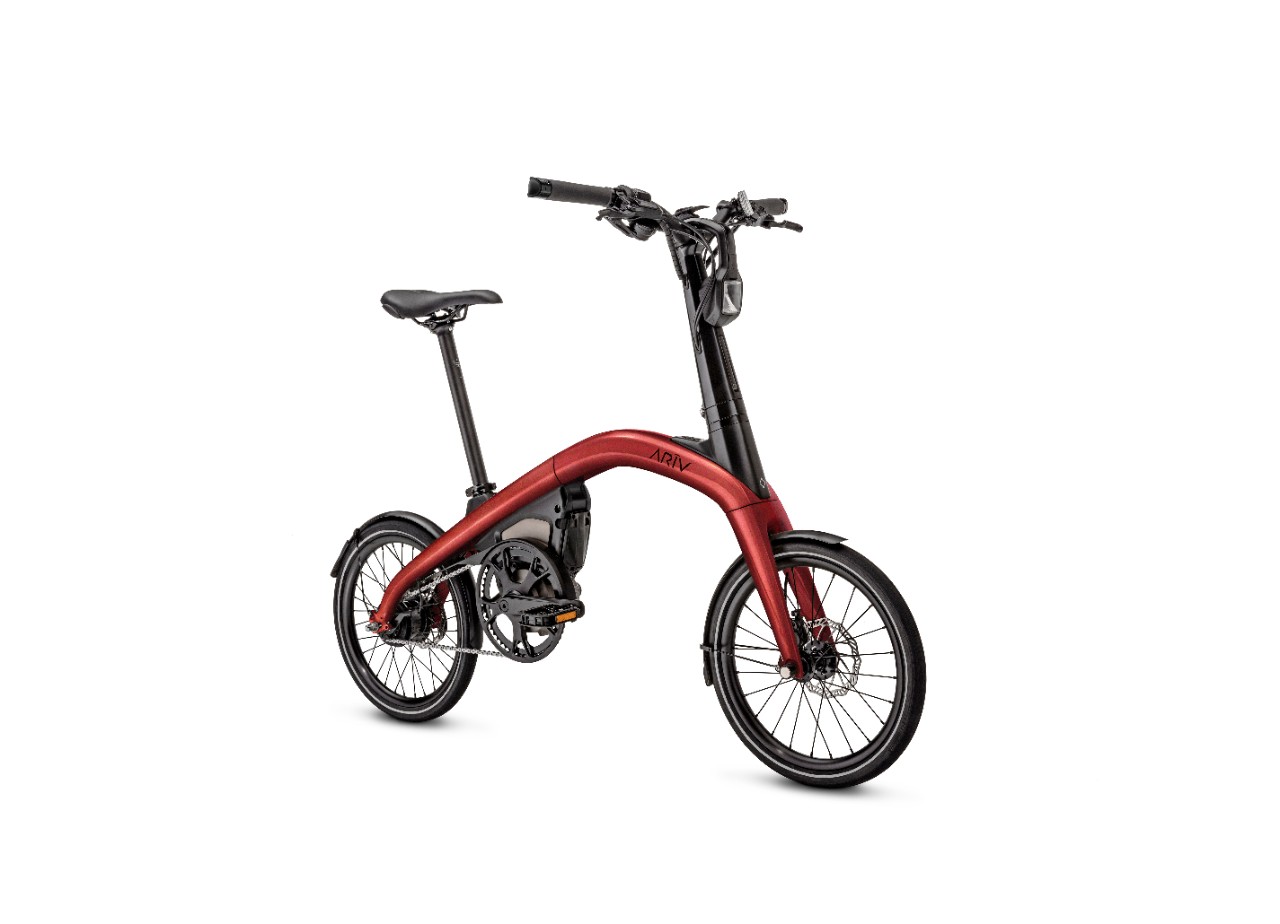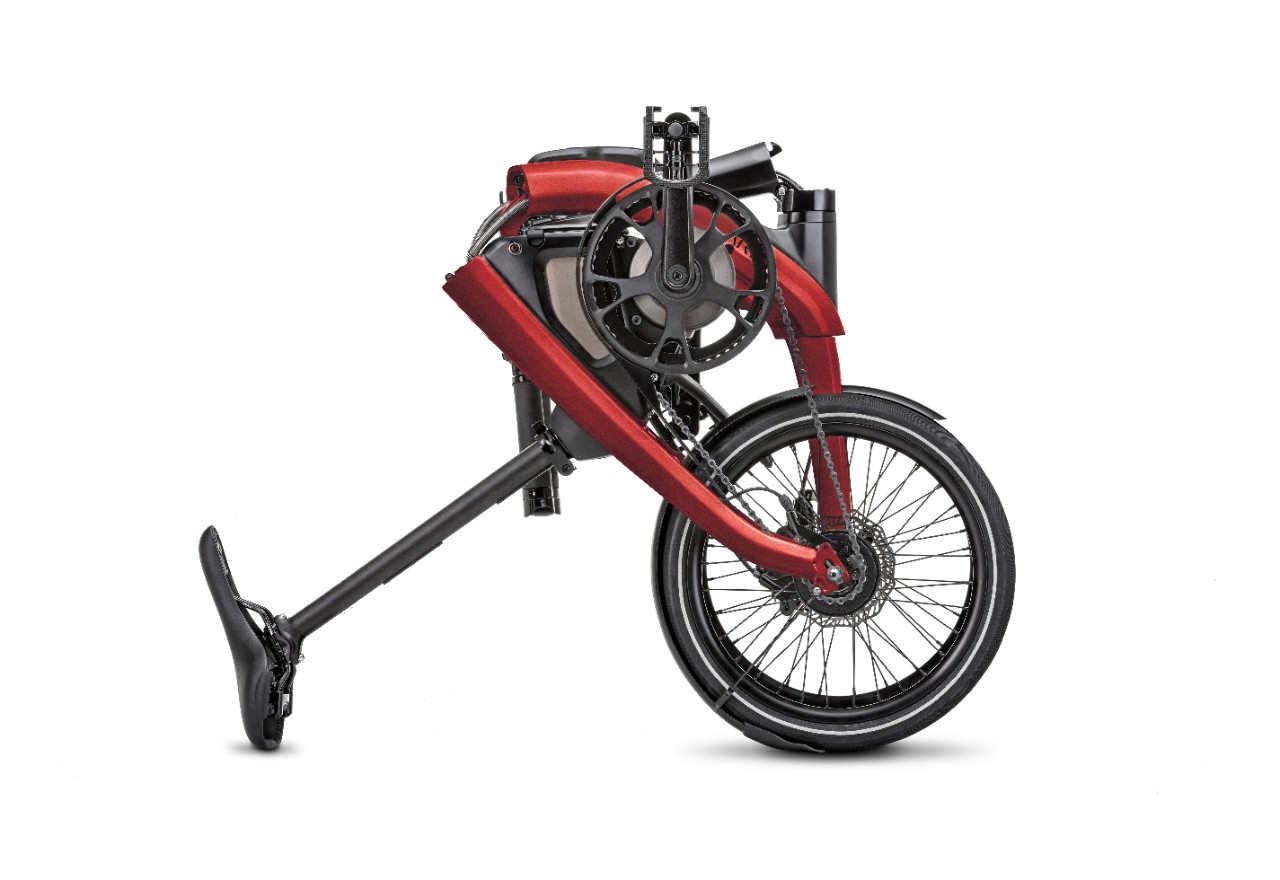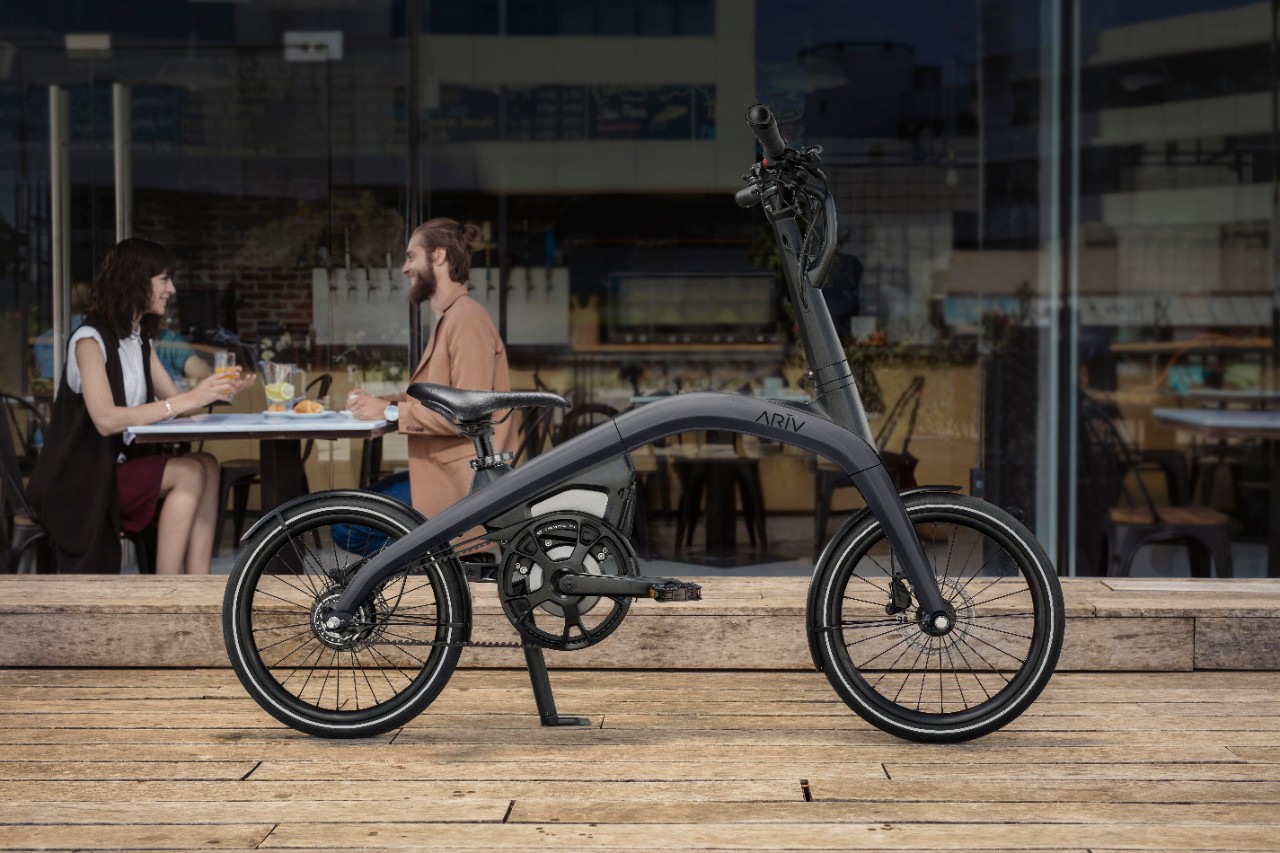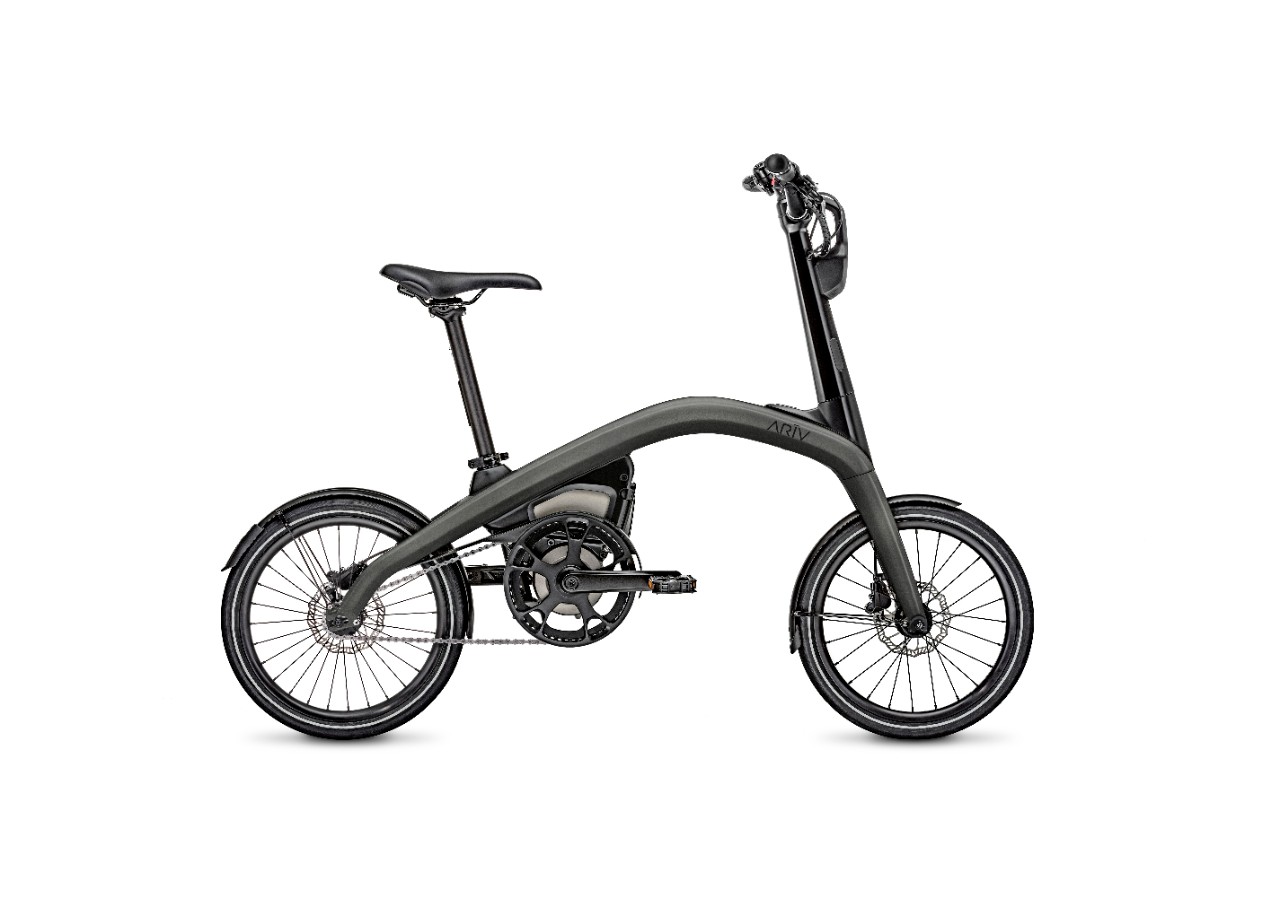General Motors’ latest product isn’t a car but an ebike.
Called the Arīv (pronounced “arrive”), GM’s first-ever ebike comes in two versions: The Arīv Merge, which folds up, and the Arīv Meld, which doesn’t.
The names were selected following a global crowdsourcing campaign that launched in November 2018. Anyone who suggested Bikey McBikeface will therefore be sorely disappointed.
The Arīv ebikes were engineered and designed at GM facilities in Michigan and Oshawa, Ontario, with the team building the motor from the ground up. Both bicycles can reach speeds of up to 25 kph, and also offer four levels of pedal-assisted power. The company claims you’ll be able to get around 40 miles (64 km) out of the battery before it needs charging, a process that should take about 3.5 hours.
Both bikes come with various safety components that include integrated, rechargeable front and rear LED lights for increased visibility, and oversized brake rotors to increase stopping power.
When folded, the Arīv Merge can be rolled along on its wheels, while a “walk mode” on both the Merge and the Meld lets you engage the motor for an easier hill climb if you choose not to ride up.
GM’s new ebikes can link up with the Arīv ebike app via Bluetooth. As you’d expect, the app offers riding metrics such as speed, distance, battery level, motor assist level, and distance traveled. The bikes also come with a handy Quad Lock mount that secures your smartphone while you ride.
The two-wheelers launch first in Germany, Belgium, and the Netherlands, with online orders set to be shipped before the end of June, 2019. We’ve reached out for information on if and when they’ll be heading stateside and will update when we hear back.
Depending on the country, the bikes will cost between 2,750 euros ($3,100 ) and 3,400 euros ($3,840).
If you’re in the market for an ebike that makes your ride a littler easier, then check out Digital Trends’ suggestions for some of the best ones currently available.
The arrival of GM’s first-ever ebikes is the latest example of how automakers are looking to venture beyond their traditional income streams in a bid to deal with the pressures of a fast-changing automotive market. Other efforts include battery-related businesses and tie-ups with tech firms developing self-driving cars or other services.
Editors' Recommendations
- 2024 Chevrolet Equinox EV: price, release date, range, and more
- Beleaguered robotaxi startup Cruise lays off quarter of workforce
- GM to cut funding for beleaguered driverless startup Cruise, report claims
- Cruise woes prompt production halt of fully driverless van
- Affordable is not enough. Here’s what Chevy’s new Bolt needs to nail







